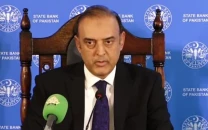Experts advocate green financing
Study reveals banking sector’s reluctance in financing green projects despite climate crisis

Experts have called on the government and State Bank of Pakistan (SBP) to implement targeted policy measures aimed at unlocking the potential of renewable energy financing, thereby driving the country’s transition towards sustainable and renewable energy sources. This call was made during the launch of a study conducted by the Islamabad-based think tank Policy Research Institute for Equitable Development (PRIED).
The study, conducted in collaboration with the German think tank Agora Energiewende, points out the limited financing opportunities for renewable energy projects in Pakistan. It recommends that the government and the SBP need to introduce targeted policy measures to facilitate renewable energy financing and promote the country’s transition towards sustainable energy sources.
Titled “Facilitating Green Loans for Sustainable Energy Transition,” the study highlights a significant gap in the financing of green energy projects. While green lending options exist, their implementation and accessibility are not consistent, says the report. It shows that despite Pakistan being among the top ten countries most affected by the negative impacts of climate change, the banking sector has shown limited interest in financing green energy projects.
The study underscores the necessity for concerted efforts, including priority lending and financing of green energy projects, to achieve national targets such as producing 60% of energy from renewable sources and running 30% of vehicles on electric engines by 2030. It stresses the pivotal role of finance in meeting these targets and leveraging the momentum of the energy transition.
Naila Saleh, project manager at Agora Energiewende, pointed out the shortfall in financing for clean projects in Pakistan and the hesitance within the banking industry to promote sustainable energy initiatives. Rimsha Rehan, a researcher at PRIED, stressed the importance of substantial investments in renewable energy, focusing on accessibility and affordability. She highlighted the crucial role of green loans, particularly for technologies like solar and wind.
Rashid Azim from United Bank Limited addressed banking restrictions, while Arslan Iqbal, the Chief Risk Officer from BOP, advocated for positive incentives over penalisation of financial institutes. He suggested providing capital relief in green financing and offering tax credits to enhance green financing for banks.
The session concluded with CEO PRIED, Badar Alam, reiterating the urgent need for sustainable transportation and energy sources, emphasising the plight of 19 million people in need of financing facilities.
Published in The Express Tribune, May 3rd, 2024.
Like Business on Facebook, follow @TribuneBiz on Twitter to stay informed and join in the conversation.



















COMMENTS
Comments are moderated and generally will be posted if they are on-topic and not abusive.
For more information, please see our Comments FAQ